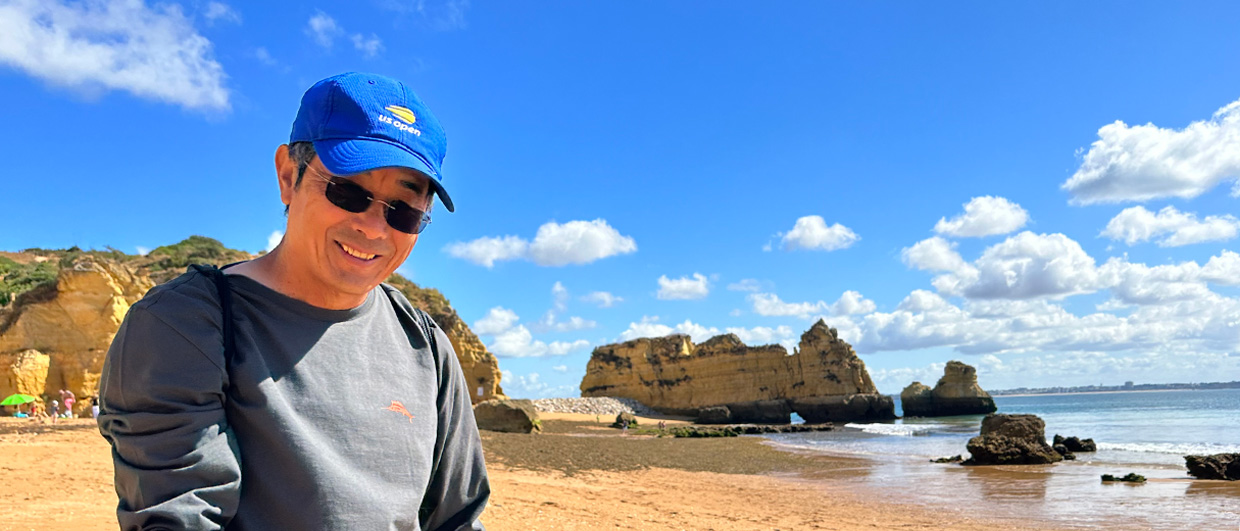You have had a very successful oil company career. What attracted you to this very different role at the IOGP?
I’ve been privileged to work for some of the best companies, including BP, Shell, BG Group, in every continent and in settings from desert to ultra-deep water. As you progress, you take on increasing responsibility, bigger field developments and operations, more production, more complex stakeholder relationships. The IOGP role may look to most as if it is a step out from my past but actually, it makes perfect sense. It is such a multifaceted role and allows me to bring everything I have learnt over the course of 30 years, technical and commercial know-how, stakeholder management and advocacy for our industry, together in one role. And what a pivotal time to be trusted to lead the Association.
Negative public opinion and the current pandemic create significant challenges for the industry. How do you see IOGP helping companies address these issues and particularly those around the energy transition and the oil industry’s role in this?
Supporting our member companies on their journeys towards a lower carbon future is one of the Association’s core tasks and a personal commitment. There is a variety of ways in which to achieve the goals of the Paris Agreements. Our industry is not only supporting global society in its efforts – we are making a tangible difference in fighting climate change: by reducing emissions from our own operations, by providing cleaner energy, and by developing low carbon technologies. IOGP is supporting its member companies across the board in this. To give you a couple of examples: IOGP has been a supporting organization to the Methane Guiding Principles since 2018 and is contributing with a range of good practice guidance including guidelines for methane emissions target setting, quantification and reporting. Our Engineering Leadership Council is leading on the Low Carbon Agenda with a portfolio of deliverables related to electrification, flaring and venting, carbon capture and storage, and energy efficiency. Together with the Oil and Gas Climate Initiative (OGCI) and the IPIECA, the global oil and gas industry association for environmental and social issues, we are working on recommended practices for methane emissions detection. We are also developing a flaring management guideline with the World Bank’s Global Gas Flaring Reduction (GGFR) Partnership, that will be relevant for governments, regulatory bodies as well as the oil and gas industry.
How do you see the IOGP adapting as integrated oil companies (IOCs) strive to become integrated energy companies (IECs)?
In every corner of our sector, every company is working daily to tackle the duality of the challenge that we face; how to meet the world’s energy demand as cleanly as possible and to drive the fight against climate change. It is not only IOCs, but also NOCs; we are all in this together and IOGP member companies span the whole spectrum. So, recognizing the shifting strategies of our members, and having a principle that an association should only exist for as long as it remains relevant and delivers value. One of my first tasks as Executive Director was to oversee a broad and deep strategic review which will identify how IOGP needs to evolve to best address the challenges and transitions in the industry and across our membership. We have collected quality data and insights from a broad range of our members as well as from external stakeholders and are now developing the potential scenarios to recommend to our Board.
What do you see as the key personal challenges you will face in this role?
Firstly, I could not have asked for a warmer welcome, for a better handover or for a more talented and dedicated team that truly shares my passion for this industry. Despite the ongoing challenging circumstances with all of us working from home, we all share a common purpose, which is to take the delivery of value from the Association for its members to the next level. My biggest personal challenge is probably to remember to hold back a little and to ensure that our relatively small team does not take on too much at once.
The oil and gas industry has huge challenges in terms of public perception and license to operate. How will the IOGP help the industry project a more positive and less defensive ‘persona’ to the broader public?
I personally believe with a passion that we need to be a consistently louder, factual and non-emotional voice for our industry. There is just so much misconception, and downright fiction that is spouted about our industry and a widespread lack of understanding of this industry’s efforts in driving the energy transitions to the lower carbon future that we all want. We have every reason to be proud of this industry, not least because without oil and gas production, not only would we not have access to reliable, affordable energy, we also wouldn’t have many of the medical items that have been needed to fight Covid, or even some of the very simple every day household items that we rely on. It’s easy to talk about the developing world’s vast and growing need for energy from fossil fuels, but let’s not forget that energy poverty is being experienced in the developed world, right here in the UK. Living in homes without power, with no money to heat or cook, sounds like a Victorian-era social issue, but it’s a real problem in Britain today. So, let’s stand up and speak up. No one else will do this for us. This not only requires relentless focus on improvements in the areas of mitigating emissions, reducing our environmental footprint and enhancing our safety performance, it also means that we need to engage with all stakeholders involved.
How do you see the industry tackle the immense challenge of security of energy supply whilst achieving global net zero targets?
While over the next 20 years the global energy demand will rise by approximately 20%, mainly in non-OECD countries, global oil and gas production declines by an average of 8%/year. So, we need investments in both existing and new fields. The crunch question is: can investment in oil and gas be compatible with the transition to a low carbon future? The answer is so obvious to me, of course it can, and it is. The transition to cleaner energy is a journey we’re already on, but like it or not, it’s going to take a few more decades. In the meantime, we need traditional sources of energy. Vilifying oil doesn’t change that and trying to downplay the role of natural gas or technologies such as Carbon Capture and Storage (CCS) is plainly incomprehensible if you’re really after a cleaner and reliable energy mix.
At the same time, the industry must continue to demonstrate that everything possible is being done to reduce the environmental footprint of hydrocarbon production, that we continue to mitigate methane emission from our own operations and that we are driving the development of low carbon technologies such as CCUS and clean hydrogen as well as operating safely and cost effectively. IOGP is working in all these areas in support of our members.
Loss of personnel and key skills from the industry is an important issue. What are your views on this?
Access to a talent pipeline of skills has never been more important. The world of work is changing and to remain competitive organizations across the board will have to think differently about how they manage talent. In out sector we are faced with the compounding effects of fewer entrants year on year and 1000s of years of experience getting ready to retire. So, this is very high on our agenda. More than ever, entrants into the workforce want to be sure that they will see themselves represented in the workforce of the companies they are considering joining. So, it is those organizations providing a diverse and inclusive working environment and a culture where differences, in the way we present ourselves, communicate and make decisions, are encouraged and valued that will be the winners of the talent war. Recognizing the criticality of this to the health of our industry, the Board of IOGP recently endorsed a recommendation to establish a new task force led by IOGP and in partnership with the American Petroleum Institute and other contributing organizations. ‘The Energy Workforce of the Future’ task force is a co-ordinated effort for our Industry aimed at addressing the root causes of the industry’s attraction and retention challenges, identifying and sharing best practices on creating diverse and inclusive cultures as well as looking at the skills mix needed for the coming decades. We welcome all potential collaboration and contribution in moving this forward.





